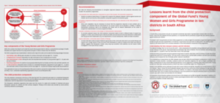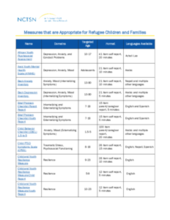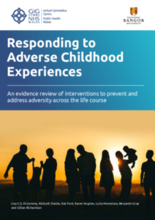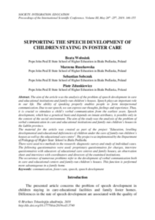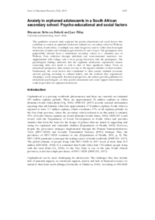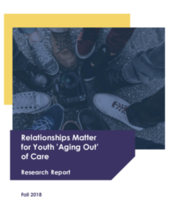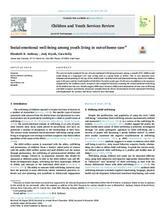Displaying 171 - 180 of 525
This briefing paper reports on the lessons learnt from a process evaluation of the child protection component of the Global Fund’s Young Women and Girls (YWG) programme, a multi-pronged HIV prevention programme targeting young women and girls implemented in 10 districts in South Africa.
The current study aims to reveal the psychological stresses faced by orphaned children in orphanages.
The National Child Traumatic Network (NCTN) has published a list of measures that front line professionals can use to assess the exposure to trauma among migrant and refugee families and children.
This study aimed to explore the psychometric properties of the BERRI in its current form for use with Looked After Children (LAC) in residential care and to explore whether these properties might be enhanced through the extraction of factors.
To support innovation in addressing adverse childhood experiences (ACEs), the authors have undertaken a review of evidence on common approaches to prevent ACEs and/or mitigate their negative impacts in Wales.
The aim of the article was the analysis of the problem of speech development in care and educational institutions and family-run children’s houses in Poland.
This qualitative research study explored the psycho-educational and social factors that contribute to anxiety in orphaned adolescent students in a secondary school in Welkom, Free State, South Africa.
The study's objective was to determine what successful caregivers of orphaned and vulnerable children (OVC) in diverse countries do to sustain their positive mental health.
Relationships Matter for Youth 'Aging Out' of Care is a collaborative photovoice project led by Melanie Doucet, who is a former youth in care, alongside eight former youth in care between the ages of 19 and 29 from the Greater Vancouver area.
The current study examined the use of socio-emotional well-being measures among a sample of 57 children and youth living in a congregate care type setting such as a group home or shelter.

